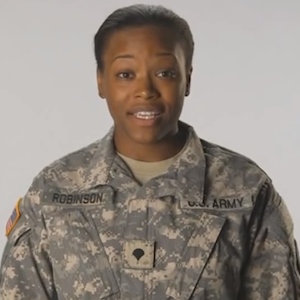Army Announces New Changes To AR 670-1, More Inclusive Policies Regarding Hair, Tattoos
The Army announced changes to the AR 670-1 on Tuesday, updating the rules for tattoos and hair acceptable for soldiers and officers after rules announced in March inspired backlash.
AR 670-1 Regulations For African-American Hairstyles
In March, updates to AR 670-1 outlawed a series of hairstyles popular with black women, including twists and dreadlocks, and naming a number of conditions for accepted hairstyles like cornrows, making each hairstyle more time-consuming and costly. For example, under the March updates, cornrows and braids had to be no more than 1/4 inch in width with a uniform 1/8-inch gap in between braids. Many women took offense to these regulations and petitioned for them to be reconsidered.
The new regulations do not include a specific measurement in terms of gap between braids, only requiring that the braids or cornrows or twists be evenly spaced. Furthermore, the accepted width has been increased to 1/2 inch.
Old regulations also required that braids be secured by small elastics, but now AR 670-1 only states that braids, twists or cornrows must be secured “inconspicuously.” Furthermore, cornrows no longer need to appear in a straight line from front to back, instead they can “follow the natural direction of the hair when worn back or in the natural direction using one part in the hair.”
The shortest hair a female soldier can have is 1/4-inch from the scalp and there is no maximum length. However, hair must be able to be worn up, in a bun measuring no more than three-and-a-half inches from the scalp out.
Tattoos
In March, new restrictions were placed on the number and size of acceptable tattoos, and soldiers hoping to apply to become officers who already exceeded the new regulation were required to receive an exemption. The revised regulations do not require an exception be given.
“The updated regulation takes into account that previously authorized tattoos should not prevent a soldier from becoming an officer, but that candidates are to be evaluated based on the whole soldier concept, or all characteristics of a soldier,” the Army said.
RELATED ARTICLES
Get the most-revealing celebrity conversations with the uInterview podcast!







Leave a comment